Welcome to DU!
The truly grassroots left-of-center political community where regular people, not algorithms, drive the discussions and set the standards.
Join the community:
Create a free account
Support DU (and get rid of ads!):
Become a Star Member
Latest Breaking News
General Discussion
The DU Lounge
All Forums
Issue Forums
Culture Forums
Alliance Forums
Region Forums
Support Forums
Help & Search
Celerity
Celerity's Journal
Celerity's Journal
May 17, 2020
Hospital staff did this to greet The Prime Minister of Belgium due to their handling of the pandemic
https://twitter.com/eliistender10/status/1261923533946527746
May 17, 2020
The orange shitehawk is twitterling again about Obama, just now
https://twitter.com/briantylercohen/status/1262103516316762113
May 16, 2020
https://twitter.com/realDonaldTrump/status/1261681866077343744
two of the monster's most dangerous Tweets ever
https://twitter.com/realDonaldTrump/status/1261685767312740353https://twitter.com/realDonaldTrump/status/1261681866077343744
May 16, 2020
https://www.businessinsider.com/amazon-warehouse-workers-thank-you-t-shirts-as-it-cuts-their-hazard-pay-2020-5?r=US&IR=T
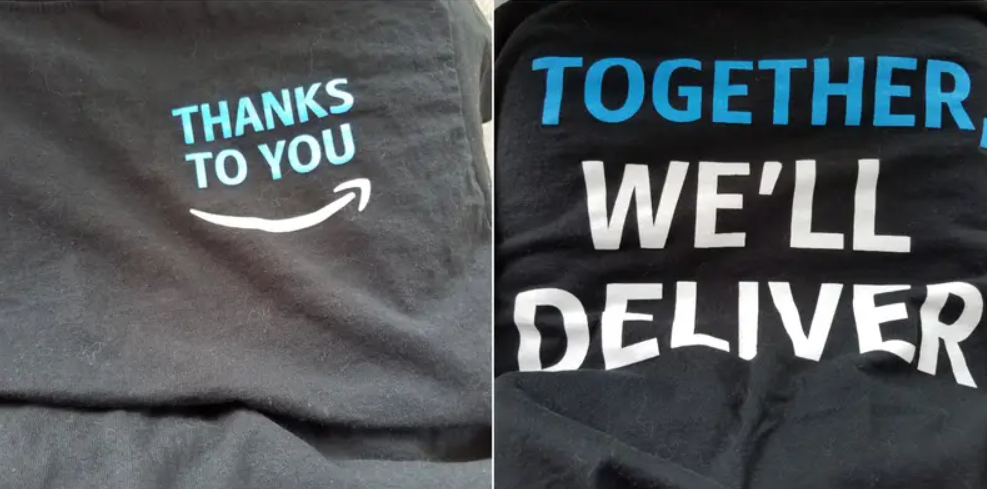
Amazon is handing out branded merchandise to say thanks to warehouse workers during the coronavirus pandemic, even as it phases out policies intended to help. Two Amazon employees told Business Insider the company has distributed "thank-you" t-shirts to its warehouse workers (or "fulfillment associates" ).
One worker based in Indiana shared a picture of the shirt they received, the front reads "Thanks to you" and on the back: "Together, we'll deliver." The workers said the t-shirts were distributed last week, when they were placed in a room and workers had to go in to pick the size they wanted. The token comes as Amazon announced it would be cutting the $2 per hour wage hike it brought in for staff in mid-March as hazard pay for coming in during the pandemic.
The workers BI spoke to aren't particularly happy about the trade-off. "With states opening up and over 21 cases at our warehouse so far and at least one death at the Indianapolis warehouse, it's a slap in the face," one said. Another employee based in Texas said similar t-shirts had been given out at their warehouse — although they did not receive one because they do not work on the warehouse floor.
"All I can say was that it felt like they are trying to change the narrative that is reflected in the news, as it looks negatively upon the company. While I hate to sound ungrateful for anything, putting a big 'Thank you' on the shirt was a clear indication they wanted to sway our thoughts. It just didn't feel sincere," they said.
snip
Amazon is handing out 'Thank you' t-shirts to warehouse workers as it cuts their hazard pay
'It's a slap in the face'https://www.businessinsider.com/amazon-warehouse-workers-thank-you-t-shirts-as-it-cuts-their-hazard-pay-2020-5?r=US&IR=T

Amazon is handing out branded merchandise to say thanks to warehouse workers during the coronavirus pandemic, even as it phases out policies intended to help. Two Amazon employees told Business Insider the company has distributed "thank-you" t-shirts to its warehouse workers (or "fulfillment associates" ).
One worker based in Indiana shared a picture of the shirt they received, the front reads "Thanks to you" and on the back: "Together, we'll deliver." The workers said the t-shirts were distributed last week, when they were placed in a room and workers had to go in to pick the size they wanted. The token comes as Amazon announced it would be cutting the $2 per hour wage hike it brought in for staff in mid-March as hazard pay for coming in during the pandemic.
The workers BI spoke to aren't particularly happy about the trade-off. "With states opening up and over 21 cases at our warehouse so far and at least one death at the Indianapolis warehouse, it's a slap in the face," one said. Another employee based in Texas said similar t-shirts had been given out at their warehouse — although they did not receive one because they do not work on the warehouse floor.
"All I can say was that it felt like they are trying to change the narrative that is reflected in the news, as it looks negatively upon the company. While I hate to sound ungrateful for anything, putting a big 'Thank you' on the shirt was a clear indication they wanted to sway our thoughts. It just didn't feel sincere," they said.
snip
May 16, 2020
https://www.theatlantic.com/culture/archive/2020/05/summer-books-quarantine-hex-catherine-house-dawn/611626/
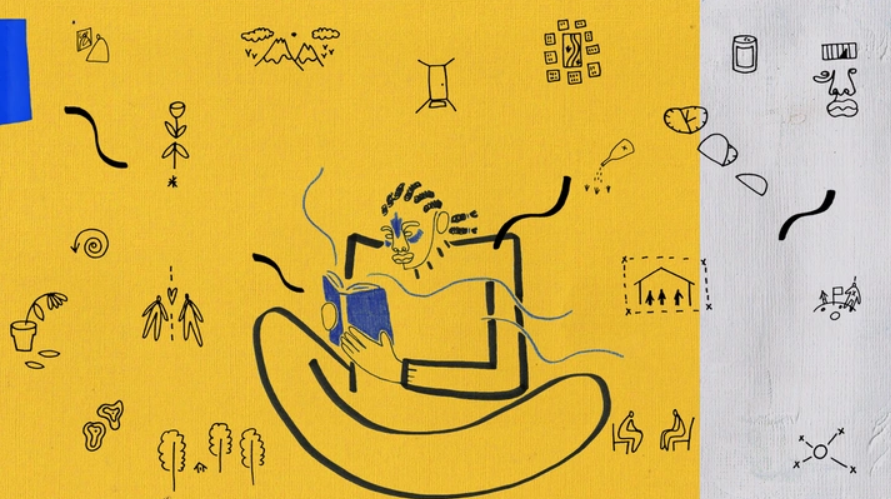
For many of those lucky enough to be able to stay home during the coronavirus pandemic, books have taken on a special meaning. COVID-19 book clubs have popped up to help readers feel connected to one another, group readings have brought new life to old poems, and—in this time of ambient anxiety—the value of losing yourself in a novel has never seemed more apparent. What follows is a selection of recommendations from The Atlantic’s culture writers and editors, with an eye toward stories that will resonate during a summer of continued social distancing and tentative reopenings. We’ve loosely grouped them according to literary cravings you might have: Perhaps you’ll decide on a breezy beach read to devour responsibly on your fire escape or a collection of nature essays that lets you explore the outdoors from your living room. Either way, stay safe, and happy reading.
IF YOU WANT TO GET LOST IN A PLACE
WILDERNESS ESSAYS, BY JOHN MUIR

For the past several years, my family has spent our summer vacations exploring America’s national parks. Acadia, Glacier, Badlands, Grand Teton, Yellowstone—they’re places as humbling as they are astounding, and our goal is to visit each one, eventually. When we canceled this year’s trip (hope to see you soon, Zion), I found some consolation in the writings of John Muir. And because the naturalist turned activist was so prolific—many of his writings were originally published in The Atlantic—I’ve been loving Wilderness Essays, a collection of the work he produced as he explored the western United States in the late-19th and early-20th centuries. Muir had the eye of a scientist and the wonder of an enthusiast; in his observations, run-on sentences spill forth in adjectival ecstasies (“the vast forests feeding on the drenching sunbeams, every cell in a whirl of enjoyment”), nature transforms from a place into a character, and the whole tumult resolves in giddy benedictions. “Climb the mountains and get their good tidings,” Muir urges. “Nature’s peace will flow into you as sunshine flows into trees.” — Megan Garber
IF YOU’RE LOOKING FOR A PAGE-TURNER
RIDDLEY WALKER, BY RUSSELL HOBAN

Set in a drizzling and benighted aftertime (nuclear war happened hundreds of years ago), written in lumps of half-destroyed English that make perfect sense when read aloud—“I dont think it makes no differents where you start the telling of a thing. You never know where it begun realy. No moren you know where you begun your oan self”—Riddley Walker is a book you’ll carry with you forever. The eponymous hero is like Holden Caulfield crossed with the narrator of Brendan Behan’s Borstal Boy: He makes his way; he pierces reality. Read it not for the pandemically appropriate apocalypse vibe, blah blah, but because it’s a work of complete fiction—an entirely made-up world with its own gravitational integrity, its own language, its own codes, its own myths, its own poetry, almost its own sense of humor—that breaks upon our world like the truth. Dazzling. — J. P.
IF YOU’RE IN THE MOOD FOR A QUEST
THE DISPOSSESSED, BY URSULA K. LE GUIN

If you’re hoping that this 1974 Nebula Award winner will help you escape our current reality, beware that the word quarantine appears on page 2. Hang on, though, as Ursula K. Le Guin does fastidiously build a new world for the reader to get lost in—or rather two new worlds. A physicist-philosopher named Shevek journeys from an inhospitable moon populated by nobly struggling anarchists to the opulent and unequal planet those people fled a few generations earlier. He hopes to reconcile the political disagreements that caused the lunar secession, and—thank the stars—the ideological contours probed by Le Guin’s starchy yet swooning prose only hazily conjure modern debates. Still, at its base, the novel searches for a social structure that can ethically withstand both boom times and crises. All the while, Shevek ponders a metaphysical question that feels especially pressing amid a historic emergency: Does time move linearly or cyclically? His eventual answer, mind-bending but earnestly argued, is a comfort. — Spencer Kornhaber
IF YOU’RE CRAVING HUMAN CONNECTION
HEX, BY REBECCA DINERSTEIN KNIGHT

Hex, Rebecca Dinerstein Knight’s hypnotic second novel, is an intimate study of both loneliness and connection. Its narrator, Nell, freshly out of a lukewarm relationship, has been expelled from her Ph.D. program after a labmate’s fatal accident; even more frightening, she’s lost the approval of Joan, the distant, demanding thesis adviser she adores. As Nell struggles ahead with her research on ways to neutralize toxic plants, her notes to Joan become a record of another, equally dangerous chemistry: the network of frustrations and desires that sets the two scientists at odds with the people closest to them. The resulting novel is tightly plotted and compelling. And if Nell’s upended life—adrift, solitary, devoted to lethal substances, and frequently spent pantsless on her apartment floor—resonates a little painfully with the reality of quarantine, her darkly funny observations and obsessions offer an absorbing escape. — R. I. S.
snip
20 Books to Read in Quarantine This Summer
Our picks for immersive, escapist, or nostalgic reading—wherever you arehttps://www.theatlantic.com/culture/archive/2020/05/summer-books-quarantine-hex-catherine-house-dawn/611626/

For many of those lucky enough to be able to stay home during the coronavirus pandemic, books have taken on a special meaning. COVID-19 book clubs have popped up to help readers feel connected to one another, group readings have brought new life to old poems, and—in this time of ambient anxiety—the value of losing yourself in a novel has never seemed more apparent. What follows is a selection of recommendations from The Atlantic’s culture writers and editors, with an eye toward stories that will resonate during a summer of continued social distancing and tentative reopenings. We’ve loosely grouped them according to literary cravings you might have: Perhaps you’ll decide on a breezy beach read to devour responsibly on your fire escape or a collection of nature essays that lets you explore the outdoors from your living room. Either way, stay safe, and happy reading.
IF YOU WANT TO GET LOST IN A PLACE
WILDERNESS ESSAYS, BY JOHN MUIR

For the past several years, my family has spent our summer vacations exploring America’s national parks. Acadia, Glacier, Badlands, Grand Teton, Yellowstone—they’re places as humbling as they are astounding, and our goal is to visit each one, eventually. When we canceled this year’s trip (hope to see you soon, Zion), I found some consolation in the writings of John Muir. And because the naturalist turned activist was so prolific—many of his writings were originally published in The Atlantic—I’ve been loving Wilderness Essays, a collection of the work he produced as he explored the western United States in the late-19th and early-20th centuries. Muir had the eye of a scientist and the wonder of an enthusiast; in his observations, run-on sentences spill forth in adjectival ecstasies (“the vast forests feeding on the drenching sunbeams, every cell in a whirl of enjoyment”), nature transforms from a place into a character, and the whole tumult resolves in giddy benedictions. “Climb the mountains and get their good tidings,” Muir urges. “Nature’s peace will flow into you as sunshine flows into trees.” — Megan Garber
IF YOU’RE LOOKING FOR A PAGE-TURNER
RIDDLEY WALKER, BY RUSSELL HOBAN

Set in a drizzling and benighted aftertime (nuclear war happened hundreds of years ago), written in lumps of half-destroyed English that make perfect sense when read aloud—“I dont think it makes no differents where you start the telling of a thing. You never know where it begun realy. No moren you know where you begun your oan self”—Riddley Walker is a book you’ll carry with you forever. The eponymous hero is like Holden Caulfield crossed with the narrator of Brendan Behan’s Borstal Boy: He makes his way; he pierces reality. Read it not for the pandemically appropriate apocalypse vibe, blah blah, but because it’s a work of complete fiction—an entirely made-up world with its own gravitational integrity, its own language, its own codes, its own myths, its own poetry, almost its own sense of humor—that breaks upon our world like the truth. Dazzling. — J. P.
IF YOU’RE IN THE MOOD FOR A QUEST
THE DISPOSSESSED, BY URSULA K. LE GUIN

If you’re hoping that this 1974 Nebula Award winner will help you escape our current reality, beware that the word quarantine appears on page 2. Hang on, though, as Ursula K. Le Guin does fastidiously build a new world for the reader to get lost in—or rather two new worlds. A physicist-philosopher named Shevek journeys from an inhospitable moon populated by nobly struggling anarchists to the opulent and unequal planet those people fled a few generations earlier. He hopes to reconcile the political disagreements that caused the lunar secession, and—thank the stars—the ideological contours probed by Le Guin’s starchy yet swooning prose only hazily conjure modern debates. Still, at its base, the novel searches for a social structure that can ethically withstand both boom times and crises. All the while, Shevek ponders a metaphysical question that feels especially pressing amid a historic emergency: Does time move linearly or cyclically? His eventual answer, mind-bending but earnestly argued, is a comfort. — Spencer Kornhaber
IF YOU’RE CRAVING HUMAN CONNECTION
HEX, BY REBECCA DINERSTEIN KNIGHT

Hex, Rebecca Dinerstein Knight’s hypnotic second novel, is an intimate study of both loneliness and connection. Its narrator, Nell, freshly out of a lukewarm relationship, has been expelled from her Ph.D. program after a labmate’s fatal accident; even more frightening, she’s lost the approval of Joan, the distant, demanding thesis adviser she adores. As Nell struggles ahead with her research on ways to neutralize toxic plants, her notes to Joan become a record of another, equally dangerous chemistry: the network of frustrations and desires that sets the two scientists at odds with the people closest to them. The resulting novel is tightly plotted and compelling. And if Nell’s upended life—adrift, solitary, devoted to lethal substances, and frequently spent pantsless on her apartment floor—resonates a little painfully with the reality of quarantine, her darkly funny observations and obsessions offer an absorbing escape. — R. I. S.
snip
May 15, 2020

BRIAN KEMP’S SHAM DEMOCRACY IN GEORGIA
The poster boy of Republican voter suppression is using loopholes in state law to cancel key Supreme Court and district attorney races in 2020.
https://theappeal.org/politicalreport/brian-kemp-georgia-supreme-court-district-attorney-elections/
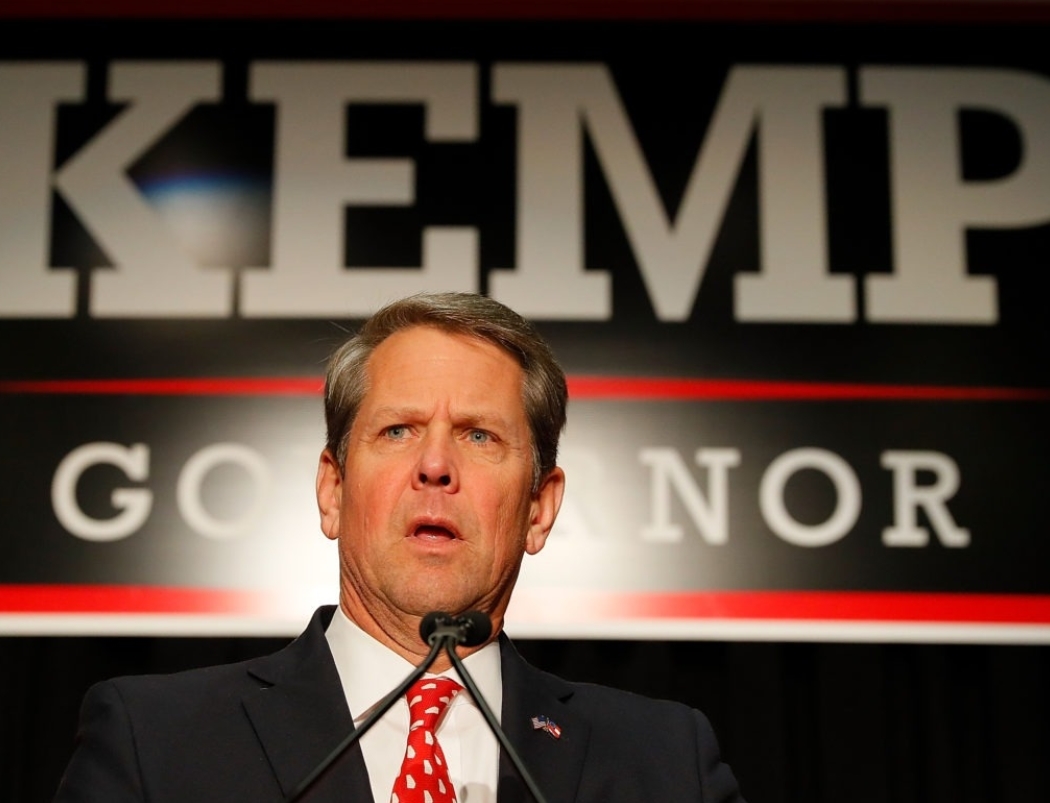
Brian Kemp rose to national prominence in 2018 after eking out a narrow victory in Georgia’s gubernatorial race, in which he deftly leveraged his position as Georgia’s secretary of state—the person responsible for administering elections—in order to win the promotion he coveted. As Democrat Stacey Abrams vied to become America’s first Black woman governor, his office froze the voter registration applications of more than 50,000 Georgians, nearly 70 percent of whom were Black. It purged 1.4 million voters from the rolls between 2012 and 2018, and stood by as county officials closed hundreds of polling places, many of which were located in low-income and minority communities. Two days before in-person voting began, Kemp even accused Democrats of “hacking” the state’s voter database in an announcement on the secretary of state’s website; 16 months later, the Georgia attorney general’s office closed its investigation of the governor’s claim after finding absolutely no evidence to support it.
Republican-coordinated voter suppression is hardly a new phenomenon in America, but the sheer brazenness of Kemp’s efforts to flout the democratic process has since made his name synonymous with the practice. As governor, Kemp has pivoted from hollowing out democratic elections to simply cancelling them. At a moment when the death of Ahmaud Arbery has drawn national attention to the administration of justice in Georgia, he and other high-profile officials are exploiting legal loopholes to block voters from choosing new leaders for the state’s criminal legal system. Thanks to a series of eleventh-hour maneuverings, three of this year’s key races—two for seats on the state Supreme Court and another for a competitive district attorney race in his hometown of Athens—will not take place after all. Brian Kemp, instead, gets to decide them by himself.
—
Over the past few months, two of the Georgia Supreme Court’s nine justices have announced plans to resign from the bench, even though their terms were already set to expire at the end of this year. In December, Chief Justice Robert Benham revealed that he would retire on March 1; in February, Justice Keith Blackwell announced that he, too, would leave his post, effective on November 18, 2020. (As the Atlanta Journal-Constitution’s Bill Torpy explains, this extended lame-duck period allows Blackwell, who previously made one of President Trump’s shortlists for the U.S. Supreme Court, to reach the 10-year service requirement necessary for his pension to vest.) The Georgia Constitution gives the governor the right to fill temporary vacancies on, in theory, a temporary basis: Interim appointees to any “public office” serve the remaining balance of the term “unless otherwise provided by this Constitution or by law.” Otherwise, if a justice’s six-year term reaches its natural conclusion, an election takes place. Had Blackwell and Benham not quit, they would have been on the ballot this year, in a contest originally scheduled for May 19 and later postponed to June 9 for COVID-19-related safety reasons.
You might think these provisions would entitle Benham’s and Blackwell’s replacements to serve only through the end of 2020, spending a few uneventful months keeping the seats warm for their duly elected successors. That “unless otherwise provided” caveat is an important one, though, because the state constitution also specifies that appointees to elected judicial positions automatically get extra time in office, serving through the year of the next general election that is more than six months out from their appointment. Put differently: If Brian Kemp makes you a Supreme Court justice with fewer than six months to go until an election for Supreme Court justice, that election gets bumped for two full years. Sure enough, on March 1, Secretary of State Brad Raffensperger cancelled the contests for both seats on the grounds that Kemp would fill these vacancies himself. The policy rationale for this loophole sounds sensible enough: It prevents rookie justices from having to learn the ropes of their new job while simultaneously running a hastily assembled campaign to keep it. But maneuvers like Blackwell’s and Benham’s are less about easing bureaucratic transitions than they are about transforming seats on the court into prizes for the governor to dole out as he sees fit. When resignations conveniently arrive this close to an election, Kemp gets to dispense entirely with the burden of holding one.
snip
Georgia: Brian Kemp maneuvers to cancel key Supreme Court and DA elections

BRIAN KEMP’S SHAM DEMOCRACY IN GEORGIA
The poster boy of Republican voter suppression is using loopholes in state law to cancel key Supreme Court and district attorney races in 2020.
https://theappeal.org/politicalreport/brian-kemp-georgia-supreme-court-district-attorney-elections/

Brian Kemp rose to national prominence in 2018 after eking out a narrow victory in Georgia’s gubernatorial race, in which he deftly leveraged his position as Georgia’s secretary of state—the person responsible for administering elections—in order to win the promotion he coveted. As Democrat Stacey Abrams vied to become America’s first Black woman governor, his office froze the voter registration applications of more than 50,000 Georgians, nearly 70 percent of whom were Black. It purged 1.4 million voters from the rolls between 2012 and 2018, and stood by as county officials closed hundreds of polling places, many of which were located in low-income and minority communities. Two days before in-person voting began, Kemp even accused Democrats of “hacking” the state’s voter database in an announcement on the secretary of state’s website; 16 months later, the Georgia attorney general’s office closed its investigation of the governor’s claim after finding absolutely no evidence to support it.
Republican-coordinated voter suppression is hardly a new phenomenon in America, but the sheer brazenness of Kemp’s efforts to flout the democratic process has since made his name synonymous with the practice. As governor, Kemp has pivoted from hollowing out democratic elections to simply cancelling them. At a moment when the death of Ahmaud Arbery has drawn national attention to the administration of justice in Georgia, he and other high-profile officials are exploiting legal loopholes to block voters from choosing new leaders for the state’s criminal legal system. Thanks to a series of eleventh-hour maneuverings, three of this year’s key races—two for seats on the state Supreme Court and another for a competitive district attorney race in his hometown of Athens—will not take place after all. Brian Kemp, instead, gets to decide them by himself.
—
Over the past few months, two of the Georgia Supreme Court’s nine justices have announced plans to resign from the bench, even though their terms were already set to expire at the end of this year. In December, Chief Justice Robert Benham revealed that he would retire on March 1; in February, Justice Keith Blackwell announced that he, too, would leave his post, effective on November 18, 2020. (As the Atlanta Journal-Constitution’s Bill Torpy explains, this extended lame-duck period allows Blackwell, who previously made one of President Trump’s shortlists for the U.S. Supreme Court, to reach the 10-year service requirement necessary for his pension to vest.) The Georgia Constitution gives the governor the right to fill temporary vacancies on, in theory, a temporary basis: Interim appointees to any “public office” serve the remaining balance of the term “unless otherwise provided by this Constitution or by law.” Otherwise, if a justice’s six-year term reaches its natural conclusion, an election takes place. Had Blackwell and Benham not quit, they would have been on the ballot this year, in a contest originally scheduled for May 19 and later postponed to June 9 for COVID-19-related safety reasons.
You might think these provisions would entitle Benham’s and Blackwell’s replacements to serve only through the end of 2020, spending a few uneventful months keeping the seats warm for their duly elected successors. That “unless otherwise provided” caveat is an important one, though, because the state constitution also specifies that appointees to elected judicial positions automatically get extra time in office, serving through the year of the next general election that is more than six months out from their appointment. Put differently: If Brian Kemp makes you a Supreme Court justice with fewer than six months to go until an election for Supreme Court justice, that election gets bumped for two full years. Sure enough, on March 1, Secretary of State Brad Raffensperger cancelled the contests for both seats on the grounds that Kemp would fill these vacancies himself. The policy rationale for this loophole sounds sensible enough: It prevents rookie justices from having to learn the ropes of their new job while simultaneously running a hastily assembled campaign to keep it. But maneuvers like Blackwell’s and Benham’s are less about easing bureaucratic transitions than they are about transforming seats on the court into prizes for the governor to dole out as he sees fit. When resignations conveniently arrive this close to an election, Kemp gets to dispense entirely with the burden of holding one.
snip
May 15, 2020
Nearly three million new unemployment claims brought the two-month total to more than 36 million, even with some still frustrated in seeking benefits.
https://www.nytimes.com/2020/05/14/business/economy/coronavirus-unemployment-claims.html
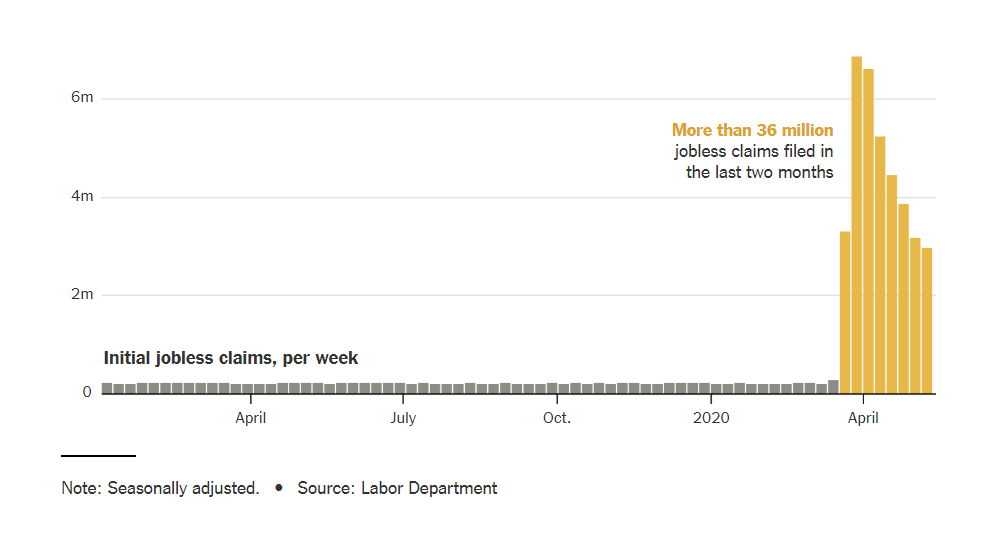
Scattershot reopenings of retail stores, nail salons and restaurants around the country have not halted the flood of layoffs, with the government reporting Thursday that nearly three million people filed unemployment claims last week, bringing the two-month tally to more than 36 million. The weekly count of new claims has been declining since late March, but that hopeful flicker barely stands out in an otherwise grim and chaotic economic landscape.
“This is a very protracted, painful situation for the labor market,” said Rubeela Farooqi, chief U.S. economist at High Frequency Economics, “and I just don’t see anything positive.” In places where the fitful reopening has started, workers called back to their jobs often face reduced hours and paychecks as well as a heightened risk of infection. Declining to return, however, is likely to put an end to any jobless benefits.
“It’s a very tough choice for those in the service industry and those at the lower end of the pay scale,” Ms. Farooqi said. “Do you go back and risk getting sick, or have no money coming in?” Lags in data make it hard to calculate just how many workers may have been rehired after the most recent shelter-in-place restrictions were lifted. And Connecticut cited an error in the government’s report that appeared to have inflated the state’s latest claims by more than 200,000.
But Michelle Meyer, head of U.S. economics at Bank of America, said she doubted that callbacks to work outnumbered additional layoffs from other sectors. The slowdown has been rippling beyond the early shutdowns in retail and hospitality to professional business services, manufacturing and health care. “In a sense, it’s a rolling shock,” she said. Georgia, one of the first states to reopen, is an example. “The reopening is bringing people back to work, reducing the total amount of people receiving unemployment insurance,” Ms. Meyer noted. “But the number of initial jobless claims is still rising, which suggests there is still residual weakness in the economy.”
snip
U.S. jobless now exceed 36 million, despite reopenings
‘Rolling Shock’ as Job Losses Mount Even With ReopeningsNearly three million new unemployment claims brought the two-month total to more than 36 million, even with some still frustrated in seeking benefits.
https://www.nytimes.com/2020/05/14/business/economy/coronavirus-unemployment-claims.html

Scattershot reopenings of retail stores, nail salons and restaurants around the country have not halted the flood of layoffs, with the government reporting Thursday that nearly three million people filed unemployment claims last week, bringing the two-month tally to more than 36 million. The weekly count of new claims has been declining since late March, but that hopeful flicker barely stands out in an otherwise grim and chaotic economic landscape.
“This is a very protracted, painful situation for the labor market,” said Rubeela Farooqi, chief U.S. economist at High Frequency Economics, “and I just don’t see anything positive.” In places where the fitful reopening has started, workers called back to their jobs often face reduced hours and paychecks as well as a heightened risk of infection. Declining to return, however, is likely to put an end to any jobless benefits.
“It’s a very tough choice for those in the service industry and those at the lower end of the pay scale,” Ms. Farooqi said. “Do you go back and risk getting sick, or have no money coming in?” Lags in data make it hard to calculate just how many workers may have been rehired after the most recent shelter-in-place restrictions were lifted. And Connecticut cited an error in the government’s report that appeared to have inflated the state’s latest claims by more than 200,000.
But Michelle Meyer, head of U.S. economics at Bank of America, said she doubted that callbacks to work outnumbered additional layoffs from other sectors. The slowdown has been rippling beyond the early shutdowns in retail and hospitality to professional business services, manufacturing and health care. “In a sense, it’s a rolling shock,” she said. Georgia, one of the first states to reopen, is an example. “The reopening is bringing people back to work, reducing the total amount of people receiving unemployment insurance,” Ms. Meyer noted. “But the number of initial jobless claims is still rising, which suggests there is still residual weakness in the economy.”
snip
May 15, 2020
https://www.nytimes.com/2020/05/14/health/coronavirus-infections.html

Coughs or sneezes may not be the only way people transmit infectious pathogens like the novel coronavirus to one another. Talking can also launch thousands of droplets so small they can remain suspended in the air for eight to 14 minutes, according to a new study. The research, published Wednesday in The Proceedings of the National Academy of Sciences, could help explain how people with mild or no symptoms may infect others in close quarters such as offices, nursing homes, cruise ships and other confined spaces. The study’s experimental conditions will need to be replicated in more real-world circumstances, and researchers still don’t know how much virus has to be transmitted from one person to another to cause infection. But its findings strengthen the case for wearing masks and taking other precautions in such environments to reduce the spread of the coronavirus.
Scientists agree that the coronavirus jumps from person to person most often by hitching a ride inside tiny respiratory droplets. These droplets tend to fall to the ground within a few feet of the person who emits them. They may land on surfaces like doorknobs, where people can touch lingering virus particles and transfer them to their face. But some droplets can remain aloft, and be inhaled by others. Elaborate experiments have revealed how coughing or sneezing can produce a crackling burst of air mixed with saliva or mucus that can force hundreds of millions of influenza and other virus particles into the air if a person is sick. A single cough can propel about 3,000 respiratory droplets, while sneezing can generate as many as 40,000.
To see how many droplets are produced during normal conversation, researchers at the National Institute of Diabetes and Digestive and Kidney Diseases and the University of Pennsylvania, who study the kinetics of biological molecules inside the human body, asked volunteers to repeat the words “stay healthy” several times. While the participants spoke into the open end of a cardboard box, the researchers illuminated its inside with green lasers, and tracked bursts of droplets produced by the speaker. The laser scans showed that about 2,600 small droplets were produced per second while talking. When researchers projected the amount and size of droplets produced at different volumes based on previous studies, they found that speaking louder could generate larger droplets, as well as greater quantities of them.

Although the scientists did not record speech droplets produced by people who were sick, previous studies have calculated exactly how much coronavirus genetic material can be found in oral fluids in the average patient. Based on this knowledge, the researchers estimated that a single minute of loud speaking could generate at least 1,000 virus-containing droplets. The scientists also found that while droplets start shrinking from dehydration as soon as they leave a person’s mouth, they can still float in the air for eight to 14 minutes. “These observations confirm that there is a substantial probability that normal speaking causes airborne virus transmission in confined environments,” the authors wrote in the study.
snip
NYT: Talking Can Generate Coronavirus Droplets That Linger Up to 14 Minutes
A new study shows how respiratory droplets produced during normal conversation may be just as important in transmitting disease, especially indoors.https://www.nytimes.com/2020/05/14/health/coronavirus-infections.html

Coughs or sneezes may not be the only way people transmit infectious pathogens like the novel coronavirus to one another. Talking can also launch thousands of droplets so small they can remain suspended in the air for eight to 14 minutes, according to a new study. The research, published Wednesday in The Proceedings of the National Academy of Sciences, could help explain how people with mild or no symptoms may infect others in close quarters such as offices, nursing homes, cruise ships and other confined spaces. The study’s experimental conditions will need to be replicated in more real-world circumstances, and researchers still don’t know how much virus has to be transmitted from one person to another to cause infection. But its findings strengthen the case for wearing masks and taking other precautions in such environments to reduce the spread of the coronavirus.
Scientists agree that the coronavirus jumps from person to person most often by hitching a ride inside tiny respiratory droplets. These droplets tend to fall to the ground within a few feet of the person who emits them. They may land on surfaces like doorknobs, where people can touch lingering virus particles and transfer them to their face. But some droplets can remain aloft, and be inhaled by others. Elaborate experiments have revealed how coughing or sneezing can produce a crackling burst of air mixed with saliva or mucus that can force hundreds of millions of influenza and other virus particles into the air if a person is sick. A single cough can propel about 3,000 respiratory droplets, while sneezing can generate as many as 40,000.
To see how many droplets are produced during normal conversation, researchers at the National Institute of Diabetes and Digestive and Kidney Diseases and the University of Pennsylvania, who study the kinetics of biological molecules inside the human body, asked volunteers to repeat the words “stay healthy” several times. While the participants spoke into the open end of a cardboard box, the researchers illuminated its inside with green lasers, and tracked bursts of droplets produced by the speaker. The laser scans showed that about 2,600 small droplets were produced per second while talking. When researchers projected the amount and size of droplets produced at different volumes based on previous studies, they found that speaking louder could generate larger droplets, as well as greater quantities of them.

Although the scientists did not record speech droplets produced by people who were sick, previous studies have calculated exactly how much coronavirus genetic material can be found in oral fluids in the average patient. Based on this knowledge, the researchers estimated that a single minute of loud speaking could generate at least 1,000 virus-containing droplets. The scientists also found that while droplets start shrinking from dehydration as soon as they leave a person’s mouth, they can still float in the air for eight to 14 minutes. “These observations confirm that there is a substantial probability that normal speaking causes airborne virus transmission in confined environments,” the authors wrote in the study.
snip
May 15, 2020
As of today, Brazil has reported 180,737 (update, it is now 203,165) cases of COVID-19, and a total of 12,635 deaths—with thousands of new cases recorded just yesterday. One physician in São Paulo said he feared the country might become “the next epicenter of the pandemic.” Brazilians are coping with the coronavirus outbreak in multiple ways: sending medical workers out into favelas to meet with patients at home, encouraging residents to wear masks and practice social distancing, setting up field hospitals, and volunteering to help those in need. Samba school members who would normally be sewing costumes for Carnival are sewing masks and scrubs for medical staff. Below are images from across Brazil over the recent weeks, as residents struggle with the COVID-19 outbreak and its wide-reaching effects.
a selection, more at the link
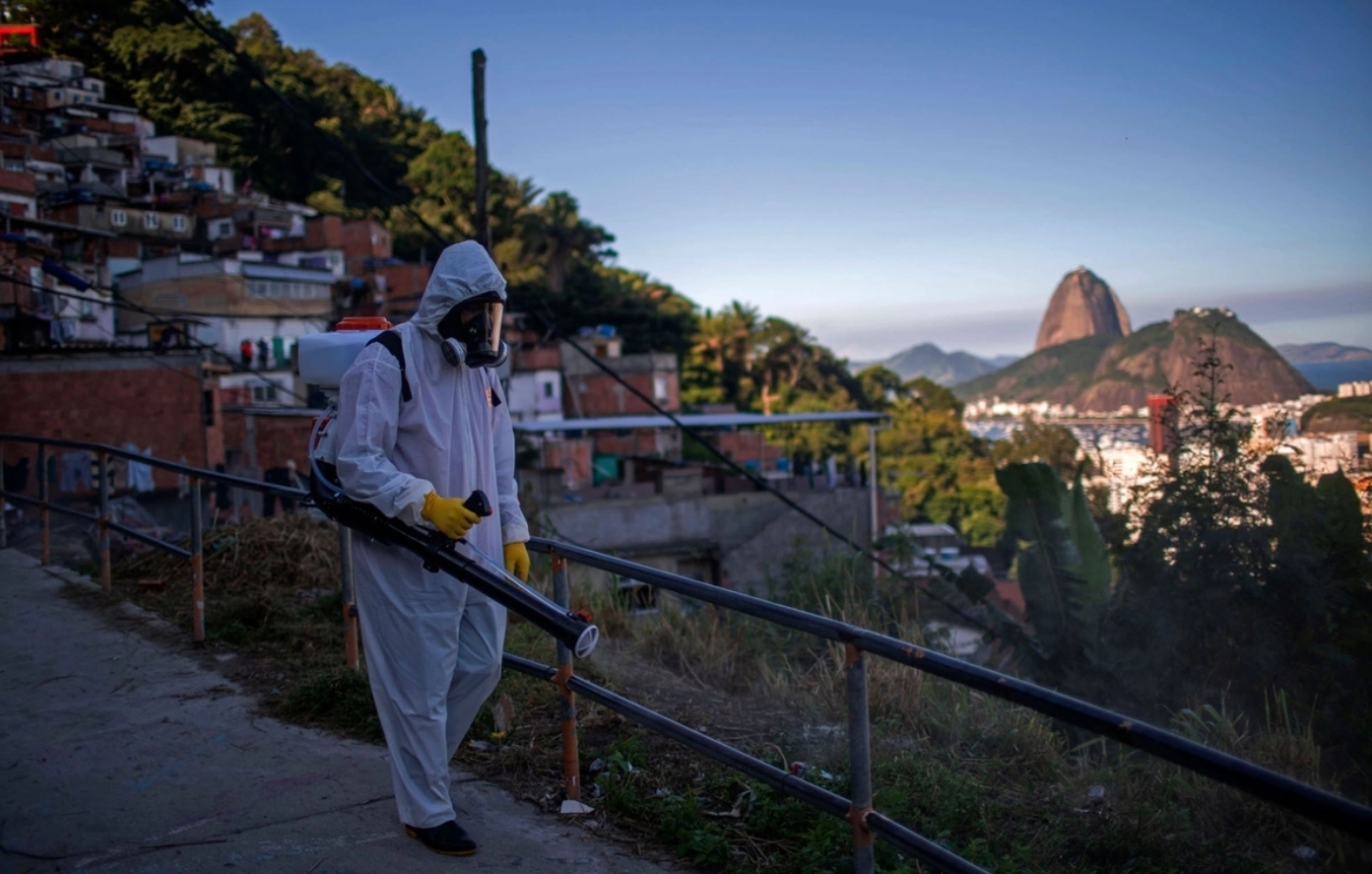
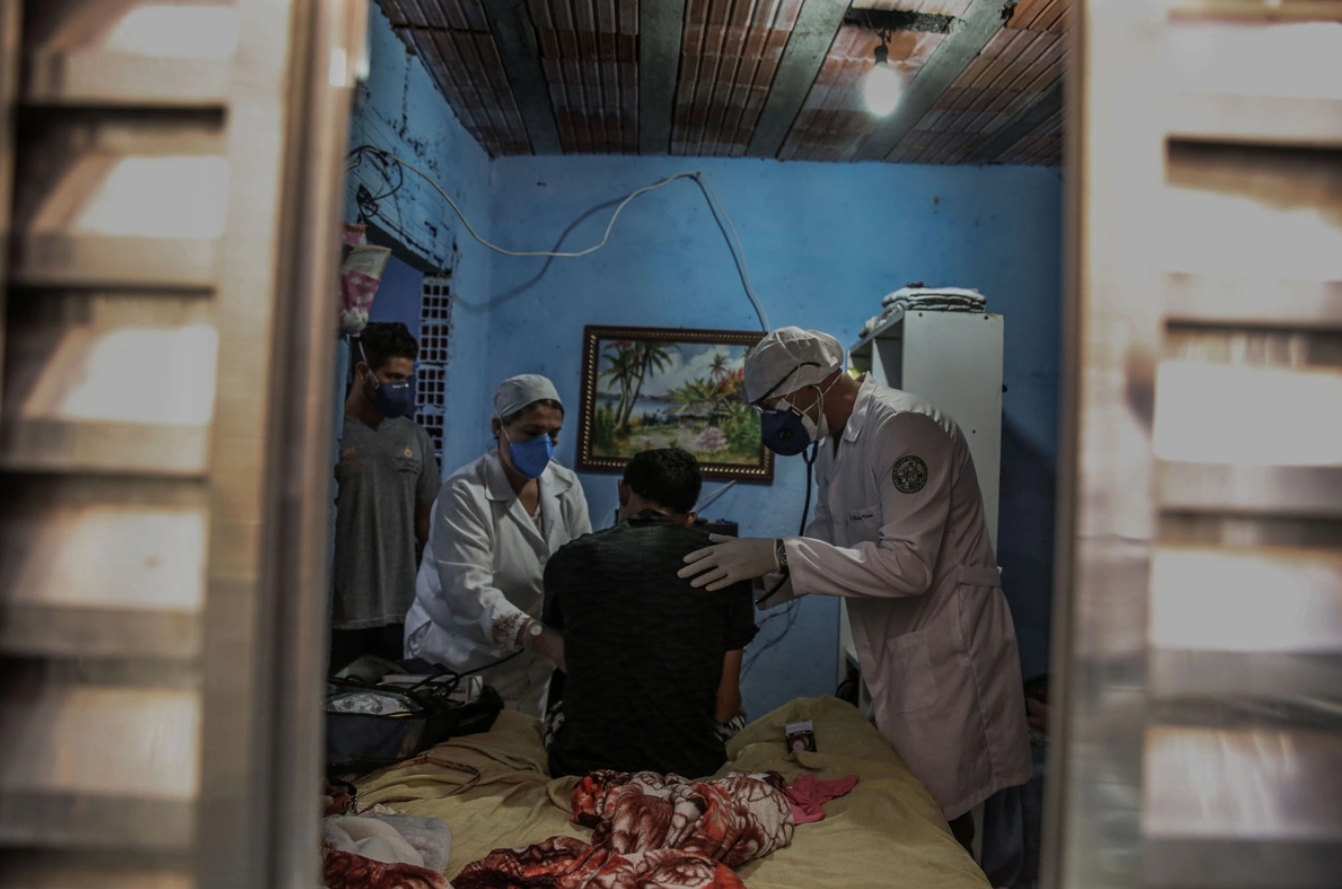
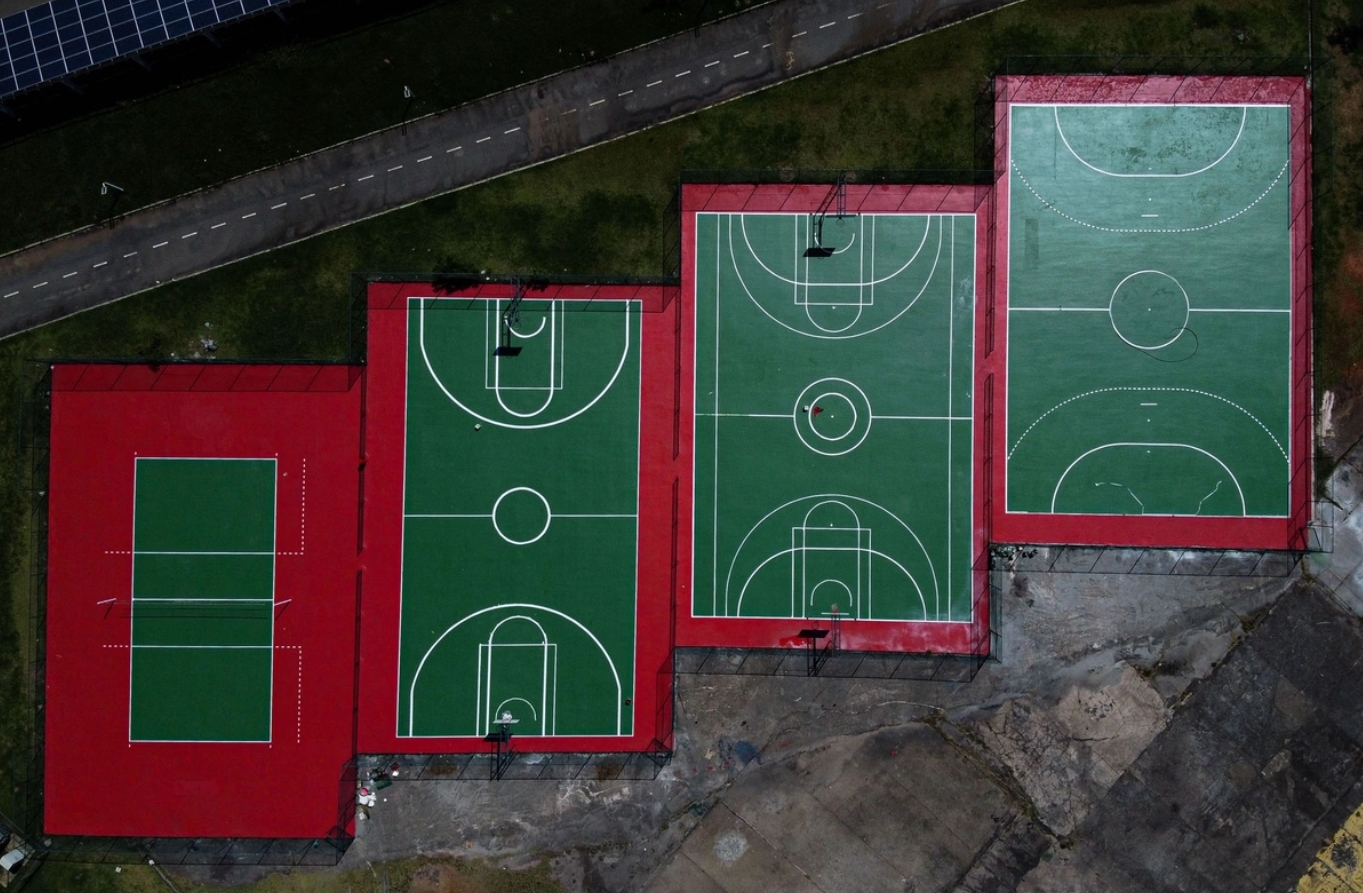
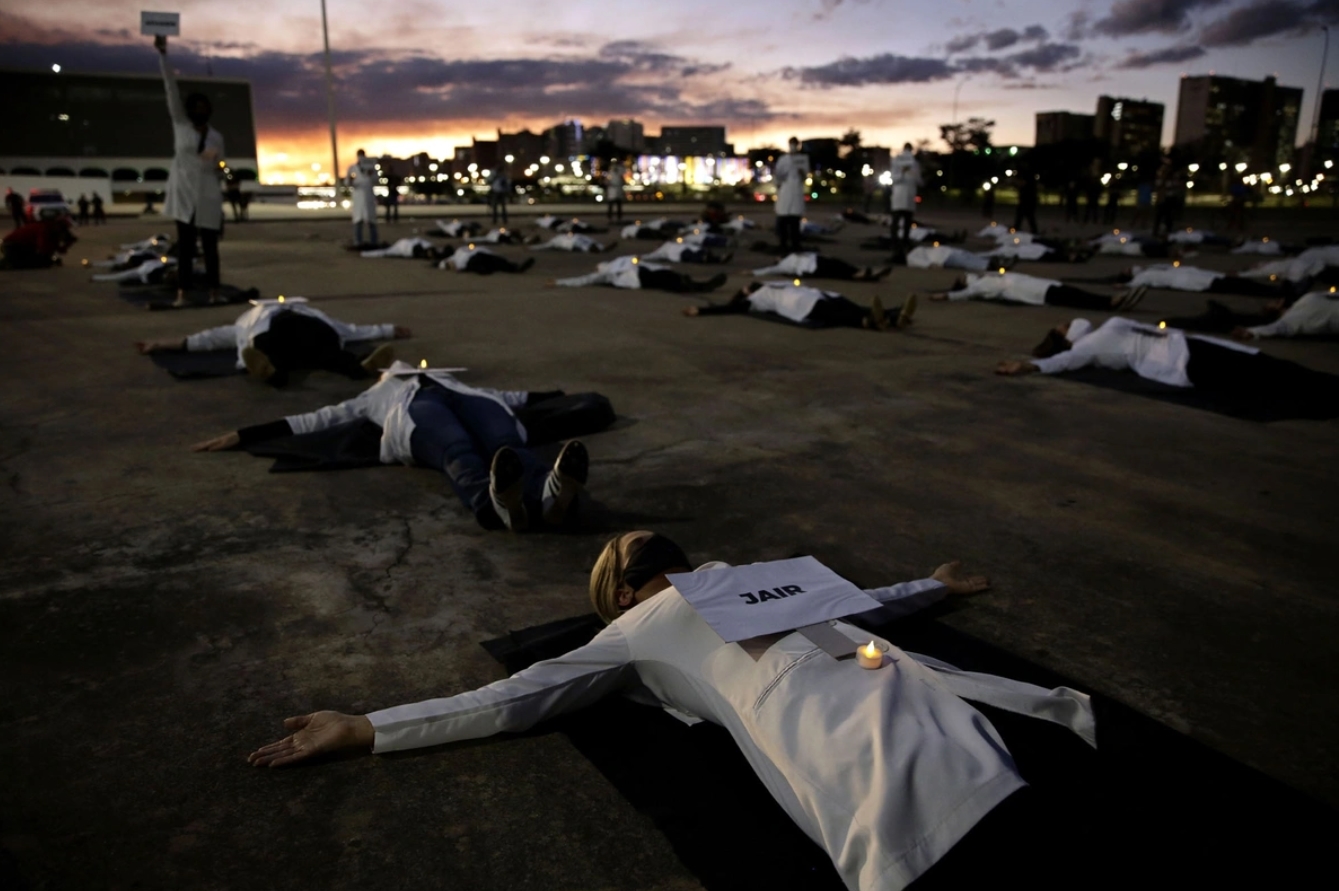


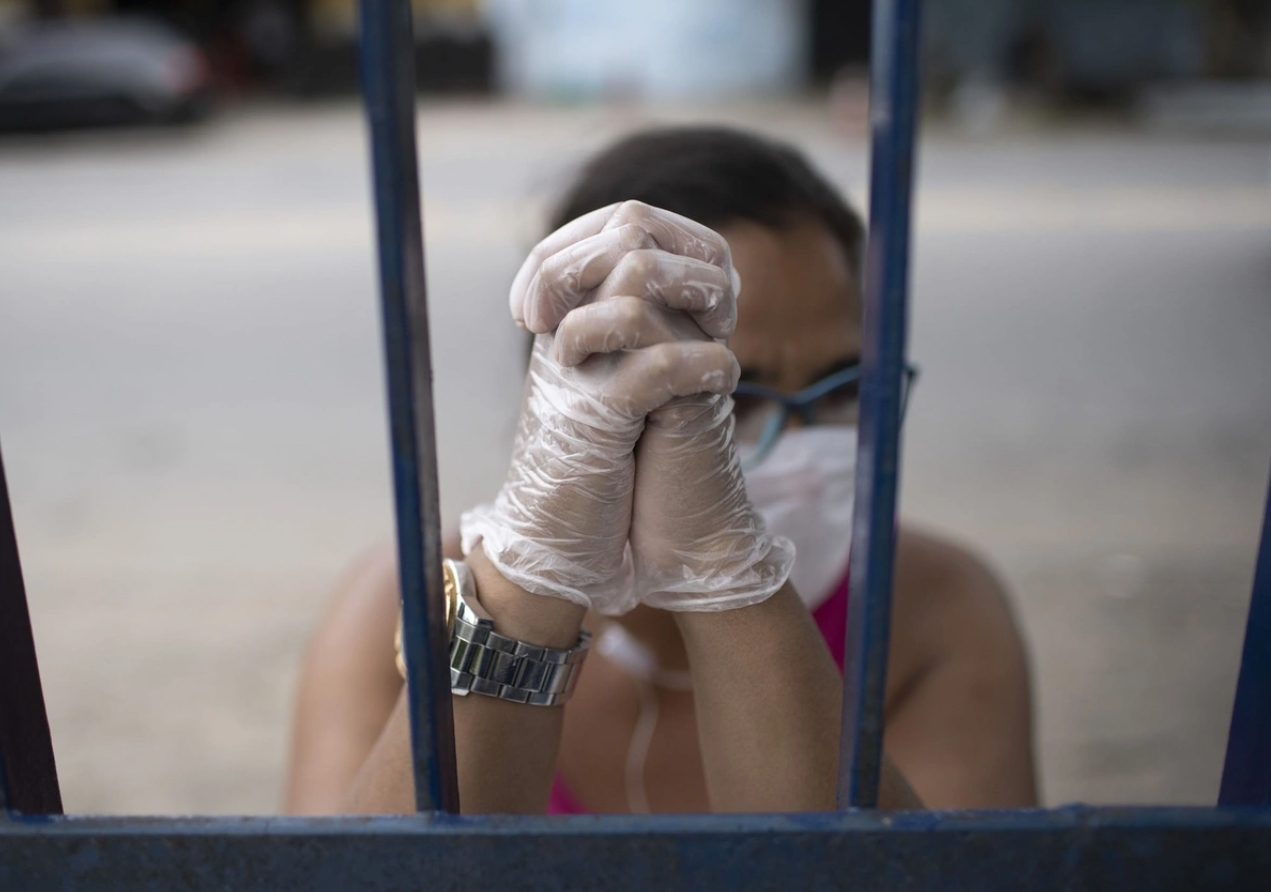
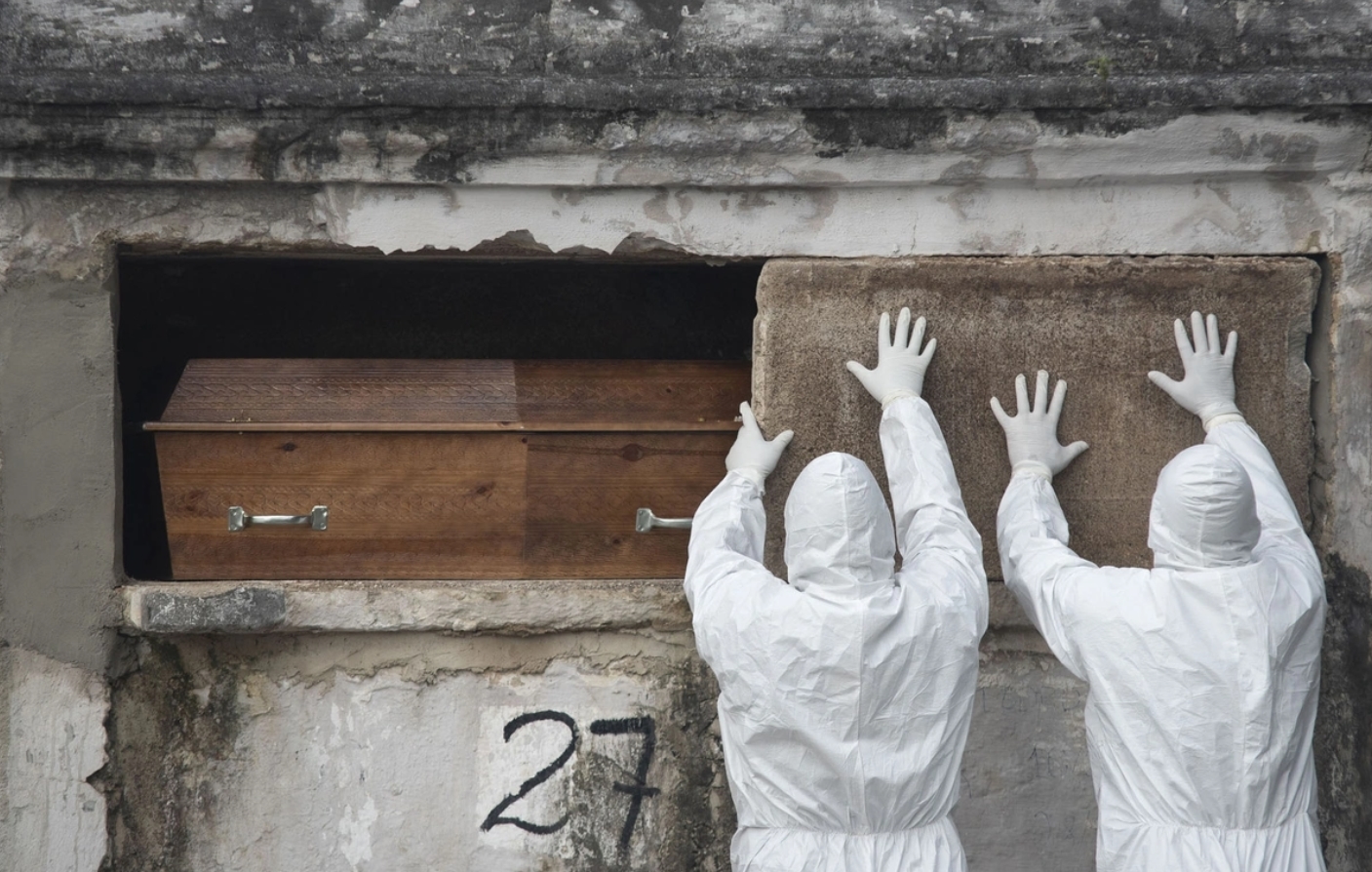
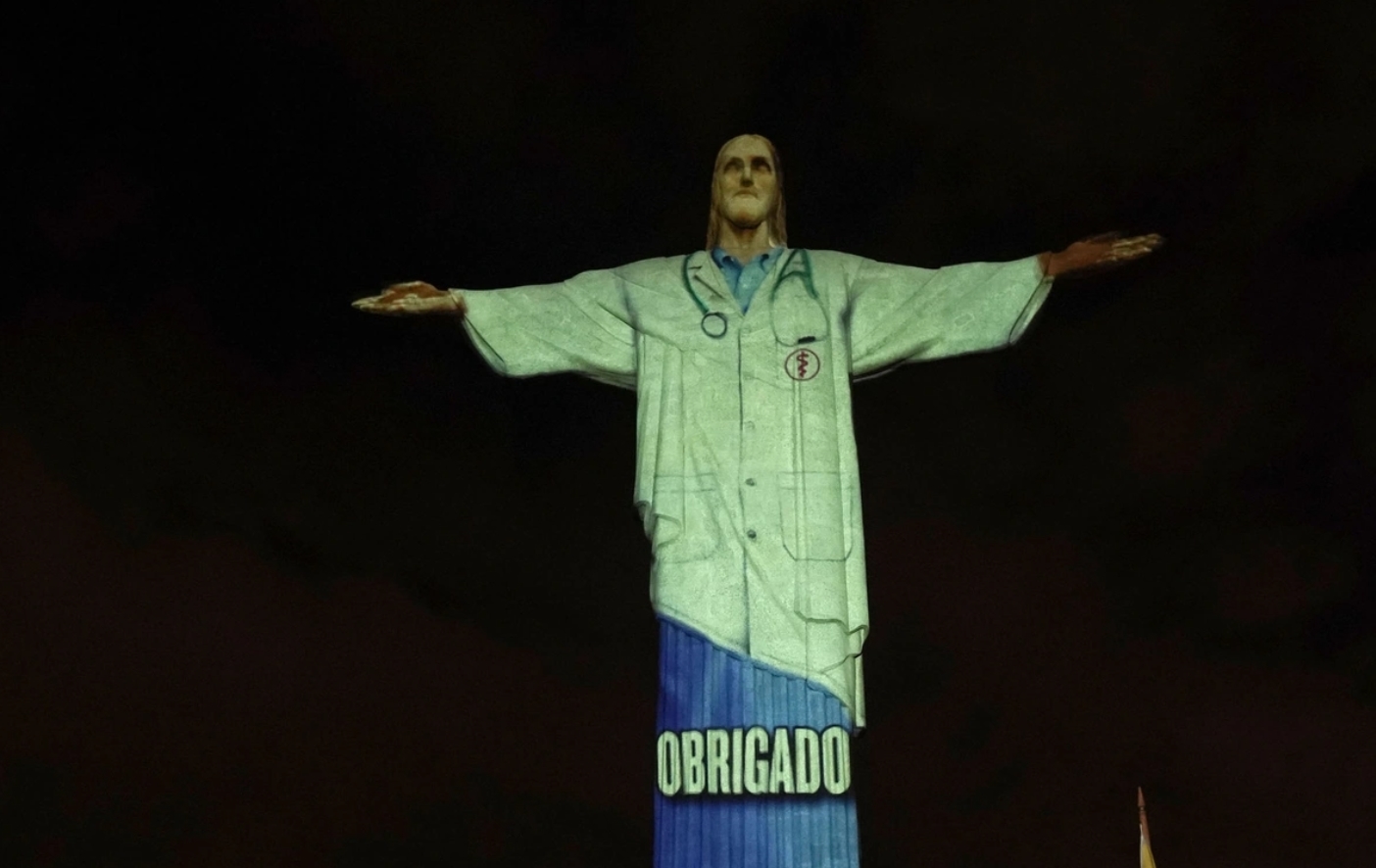
Photos: The Coronavirus in Brazil
https://www.theatlantic.com/photo/2020/05/photos-coronavirus-brazil/611608/As of today, Brazil has reported 180,737 (update, it is now 203,165) cases of COVID-19, and a total of 12,635 deaths—with thousands of new cases recorded just yesterday. One physician in São Paulo said he feared the country might become “the next epicenter of the pandemic.” Brazilians are coping with the coronavirus outbreak in multiple ways: sending medical workers out into favelas to meet with patients at home, encouraging residents to wear masks and practice social distancing, setting up field hospitals, and volunteering to help those in need. Samba school members who would normally be sewing costumes for Carnival are sewing masks and scrubs for medical staff. Below are images from across Brazil over the recent weeks, as residents struggle with the COVID-19 outbreak and its wide-reaching effects.
a selection, more at the link









Profile Information
Gender: FemaleHometown: London
Home country: US/UK/Sweden
Current location: Stockholm, Sweden
Member since: Sun Jul 1, 2018, 07:25 PM
Number of posts: 43,259
